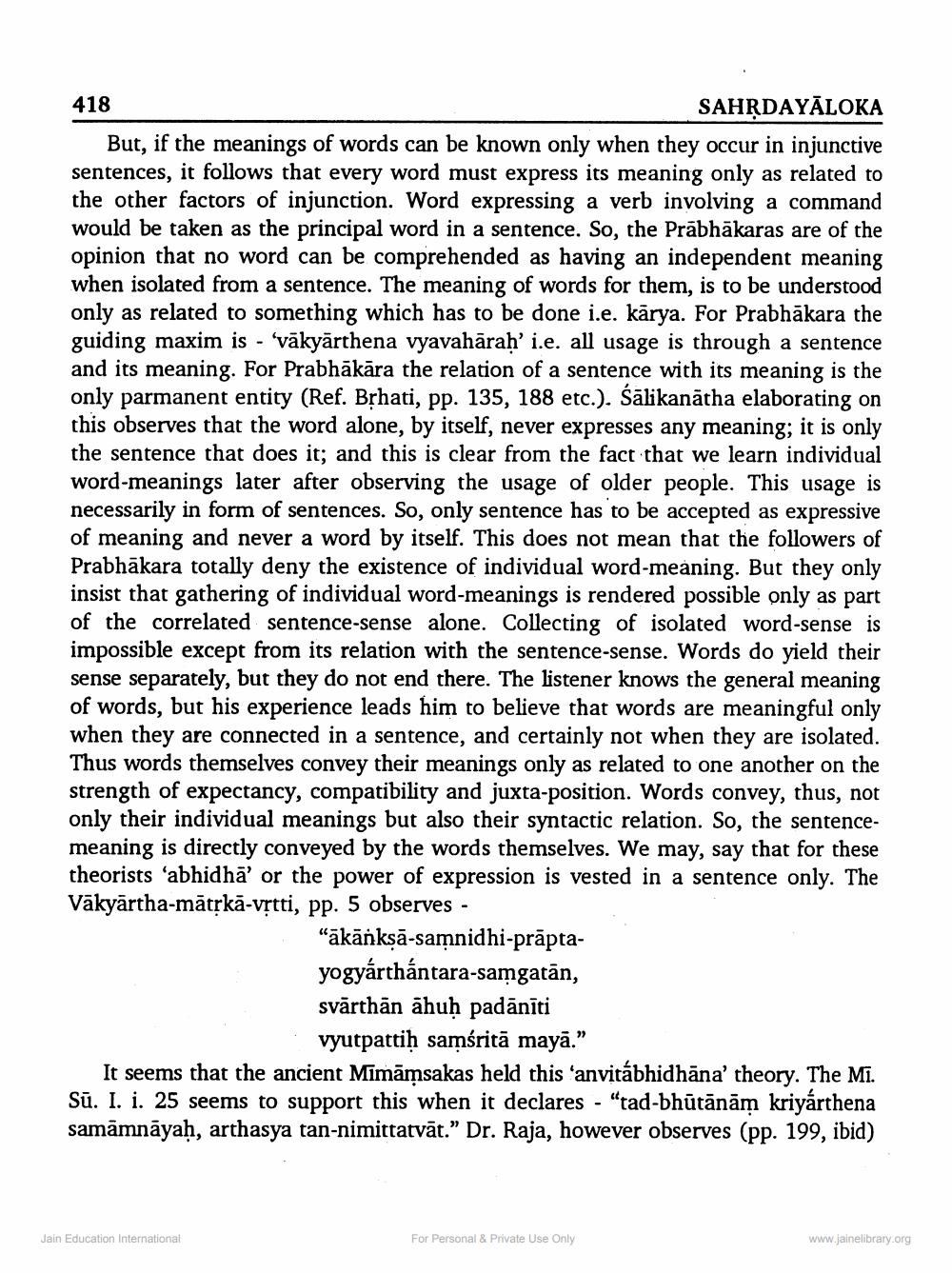________________
418
SAHRDAYĀLOKA But, if the meanings of words can be known only when they occur in injunctive sentences, it follows that every word must express its meaning only as related to the other factors of injunction. Word expressing a verb involving a command would be taken as the principal word in a sentence. So, the Prābhākaras are of the opinion that no word can be comprehended as having an independent meaning when isolated from a sentence. The meaning of words for them, is to be understood only as related to something which has to be done i.e. kārya. For Prabhākara the
ng maxim is - 'väkyārthena vyavahārah' i.e. all usage is through a sentence and its meaning. For Prabhākāra the relation of a sentence with its meaning is the only parmanent entity (Ref. Brhati, pp. 135, 188 etc.). Sālikanātha elaborating on this observes that the word alone, by itself, never expresses any meaning; it is only the sentence that does it; and this is clear from the fact that we learn individual word-meanings later after observing the usage of older people. This usage is necessarily in form of sentences. So, only sentence has to be accepted as expressive of meaning and never a word by itself. This does not mean that the followers of Prabhākara totally deny the existence of individual word-meaning. But they only insist that gathering of individual word-meanings is rendered possible only as part of the correlated sentence-sense alone. Collecting of isolated word-sense is impossible except from its relation with the sentence-sense. Words do yield their sense separately, but they do not end there. The listener knows the general meaning of words, but his experience leads him to believe that words are meaningful only when they are connected in a sentence, and certainly not when they are isolated. Thus words themselves convey their meanings only as related to one another on the strength of expectancy, compatibility and juxta-position. Words convey, thus, not only their individual meanings but also their syntactic relation. So, the sentencemeaning is directly conveyed by the words themselves. We may, say that for these theorists 'abhidhā' or the power of expression is vested in a sentence only. The Vākyārtha-mātļkā-vștti, pp. 5 observes -
"ākānkṣā-samnidhi-prāptayogyárthántara-samgatān, svārthān āhuḥ padānīti
vyutpattiḥ samśritā mayā.” It seems that the ancient Mimāņsakas held this ‘anvitábhidhāna' theory. The Mi. Sū. I. i. 25 seems to support this when it declares - "tad-bhūtānām kriyárthena samāmnāyah, arthasya tan-nimittarvāt.” Dr. Raja, however observes (pp. 199, ibid)
Jain Education International
For Personal & Private Use Only
www.jainelibrary.org




